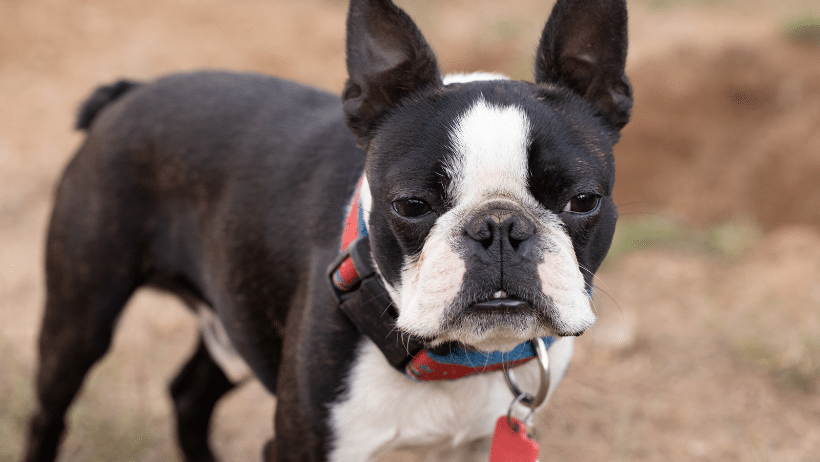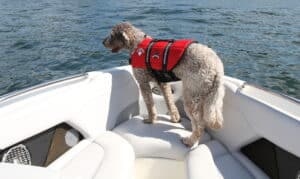
The Boston Terrier is a pure breed that was developed in the United States. In 1870, a breeder named Robert C. Hooper of Boston bought an Old English Bulldog and an English White Terrier mix. He bred this dog with a small dog and bred their puppies with even smaller French Bulldogs. This became the basis for the Boston Terrier as we now know it. The name Terrier is actually a misnomer. Boston Terriers have very little Terrier in their ancestry and are more closely related to Bulldogs.
In 1893, the Boston Terrier gained membership in the American Kennel Club (AKC), a national organization that recognizes pure dog breeds. The Boston Terrier was the first U.S. breed to enter the AKC. A member of the non-sporting group, this breed is a companion dog. It is sturdy, compact, muscular, and small enough to be carried. Boston Terrier breeders will tell you that today’s Boston Terrier is a much different character than its Bulldog ancestors, which were bred to fight bulls and each other.
Though the Bulldog was bred to fight bulls and other dogs, this trait has been bred out of the Boston Terrier. Boston Terrier breeders describe Boston Terriers as gentle, alert intelligent, and affectionate. The breed is the first American-bred dog to be included in the American Kennel Club. The breed was recognized in 1893.
Due to their close ancestry with Bulldogs, some Boston Terriers can have behavioral issues such as territoriality, rambunctiousness, excessive barking, and aggressive behavior toward other dogs. Most of the aggression has been bred out, but Boston Terrier puppies need to receive close monitoring from birth to make sure they do not express dominant behaviors.
This breed is very sensitive to the tone of voice and Boston Terrier breeders will inform buyers that a little bit of vocal coaching goes a long way. Boston Terriers do not respond well to negative reinforcement, shouting, or punishment. However, positive reinforcement techniques such as soothing vocal tones and treats can be successful, particularly with housebreaking.
The short, fine coat of the Boston Terrier requires minimal grooming. Nails should be clipped regularly and the face and ears should be wiped with a damp cloth every day. Boston Terriers are prone to ocular conditions such as cherry eye and cataracts so eyes should be checked regularly.
Buyers should thoroughly research the breed to make sure they can meet its needs. Once buyers have found that this is the breed they are looking for, they can begin researching Boston Terrier breeders.
To find good Boston Terrier breeders, buyers should do the following:
- -Research the breed themselves so they know what to look for in a breeder and a puppy.
- -Ask for references to Boston Terrier breeders in the community.
- -Look for links to Boston Terrier breeders on the American Kennel Club website.
- -Make sure that breeders maintain their own kennels.
- -Make sure that puppies have been socialized and have house privileges.
- -Meet puppies and parents prior to purchase.
- -Ask if puppies and parents have been screened for common genetic defects.
- -Request copies of medical records and immunizations.
- -Ask if the breeders run or are affiliated with a breed-specific rescue.
- -Request a warranty or guarantee on health.
- -Make sure breeders do not broker or sell pets to pet stores.
- -Ask breeders to provide general to specific Boston Terrier information.
- -Make sure breeders interview buyers to ensure puppies and buyers are a good match.
Finding a good breeder and the right puppy can take quite some time but is well worth the effort.





